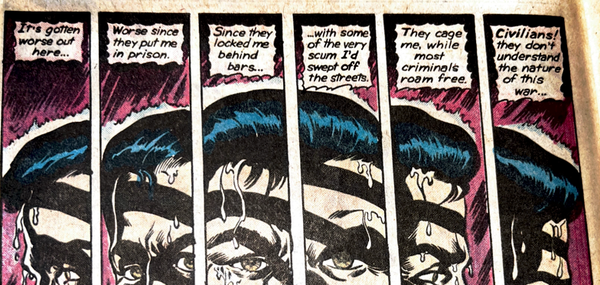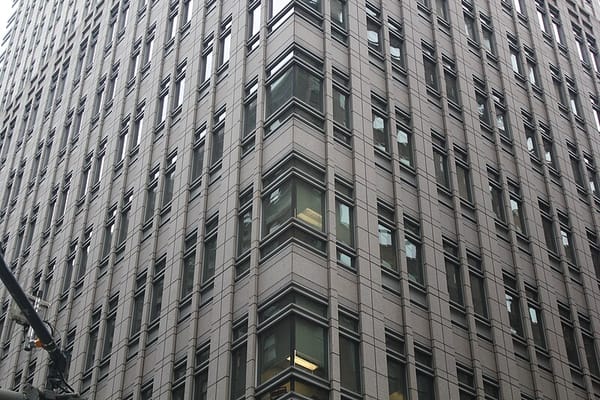A Dark Anniversary
What the aftermath of the Cyprus invasion reveals about nationalism, authoritarianism, and democracy.
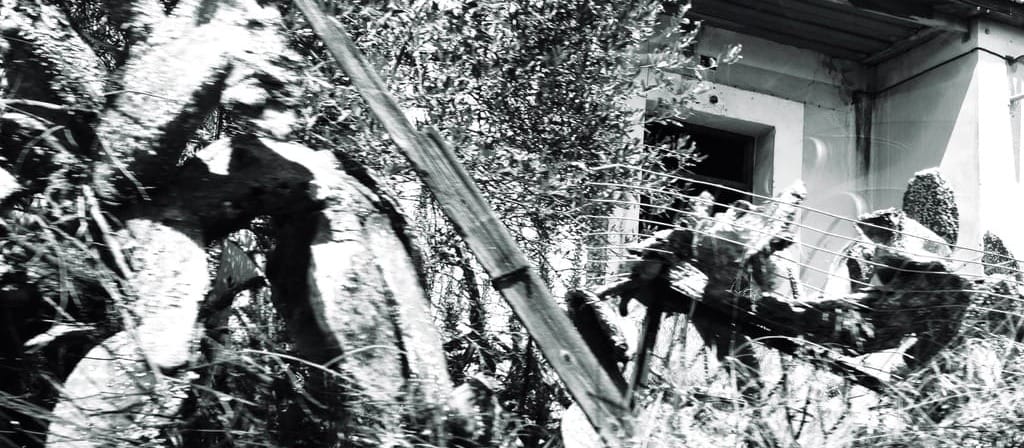
Fifty years ago today, Turkey invaded the island of Cyprus. As part of this “peace operation”, (as the Turkish government called it), the Turkish army killed and “disappeared” thousands of Greek Cypriots, drove hundreds of thousands of people from their homes, and occupied approximately forty percent of the island.
Half a century later, the wound is unhealed. Cyprus remains de facto partitioned, with only the Republic of Cyprus recognized by the international community; the breakaway “Turkish Republic of Northern Cyprus” is recognized only by Turkey.
Efforts to resolve the conflict over the years have failed. After so many false starts and dead-end negotiations, Cypriots can be forgiven for being cynical about the prospects for justice, reconciliation, and reunification.
Plenty has been written about the causes of the “Cyprus Problem” and who is to blame. Less has been said about its impact on other players in the region and what it reveals about colonialism, nationalism, democracy, and human rights today.
In 1821, after 400 years of Turkish rule, Greeks in what is now mainland Greece rebelled against their Ottoman rulers and established a modern Greek state. Their initial victory was partial: the Greece of 1832 covered less than a third of the Greek population in the region.
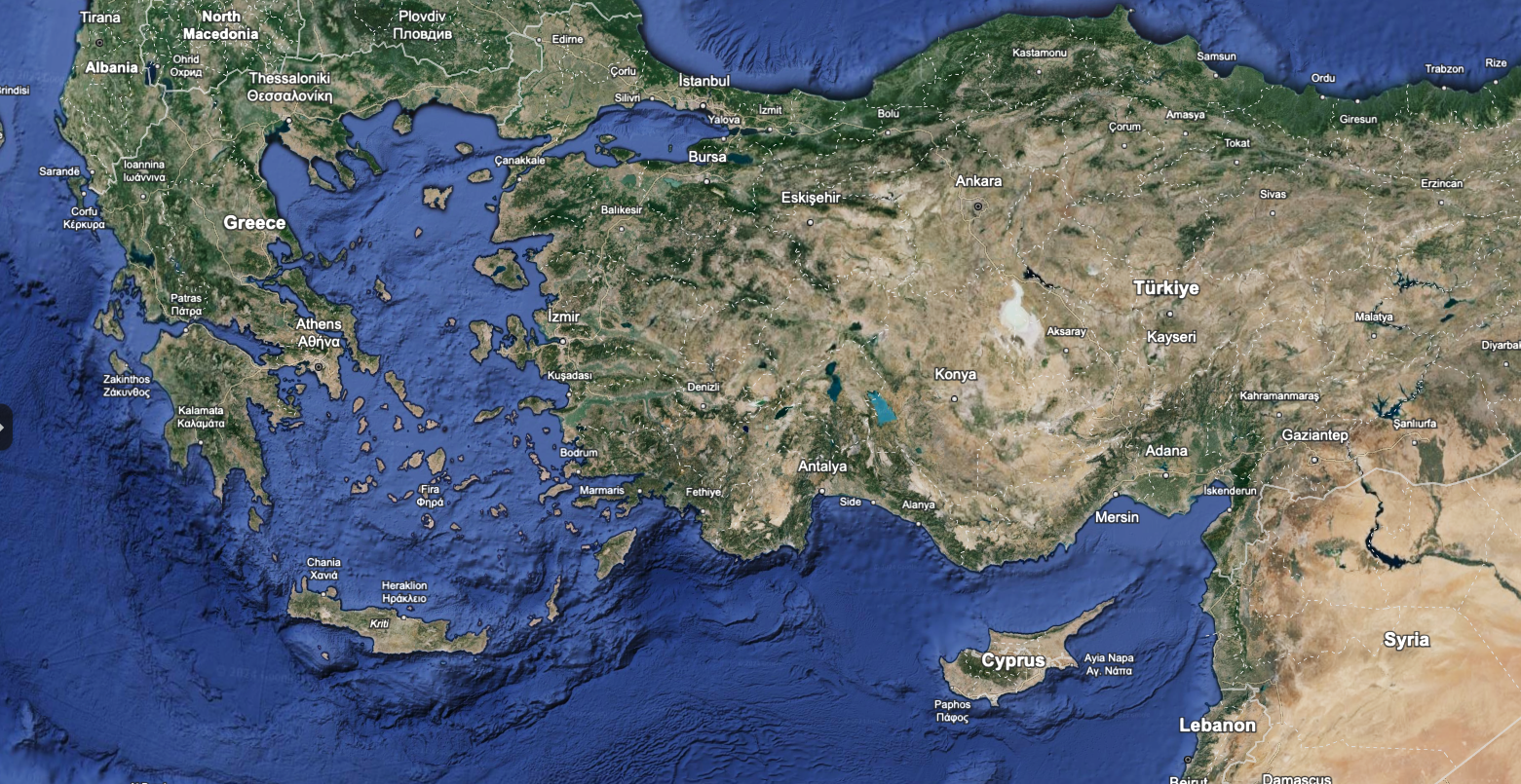
Following the war, the “Great Idea” (Megali Idea) of Greek nationalism was to liberate the remaining historically Greek regions and establish a neo-Byzantine empire with Constantinople as its capital. Over the next century, Greece expanded its territory through wars, rebellions, and treaties to eventually include Crete, Thessaly, and Macedonia.
Greek Cypriots, who had also been under Ottoman rule for centuries, dreamed of enosis (“union”) with Greece as well, though after the Greek War of Independence, there were no active rebellions there until the 1930s. In 1878, the Ottomans gave Cyprus to the British as thanks for their help during the Russo-Turkish war, setting the stage for the later conflict.
Greece, meanwhile, was riven with deep internal divides, from the moment the Great Powers decreed that it should be a monarchy ruled by a foreign king (Otto of Bavaria). Between its inception in 1832 and the mid-20th century, Greece experienced a tumultuous political landscape, alternating between constitutional monarchy (with varying degrees of royal power), military dictatorships, and periods of republican rule.
The “Great Idea” in its most expansive sense died after the “Great Catastrophe” of 1922 when the Greek army was driven out of Asia Minor by the new Turkish army of Mustafa Kemal (later known as Atatürk). In the process, the ancient Greek city of Smyrna was burned, and 1.6 million Anatolian Greeks became refugees and were forced to relocate to mainland Greece.
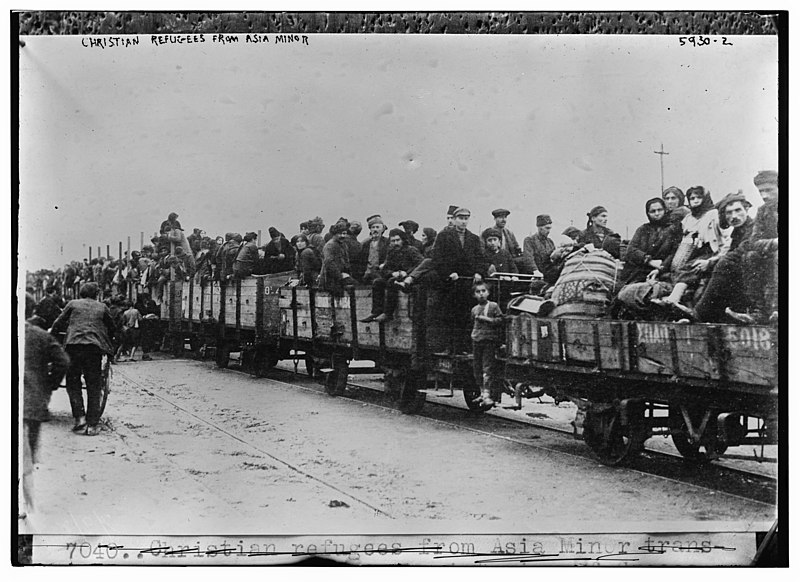
In 1955, under the leadership of the right-wing Colonel George Grivas and Archbishop Makarios, the Greek Cypriot population rebelled against colonial rule.
But while the Greek population was united in its desire for enosis, the minority Turkish Cypriot population, was less enthusiastic. The British, always masters of “divide and conquer”, exploited and stoked these divisions.
Among many other actions, the British encouraged Turkish Prime Minister Adnan Menderes to threaten Greece. In September of 1955, the Menderes regime orchestrated a pogrom against the ever-shrinking Greek population of Istanbul (Constantinople) by secretly bombing the Turkish consulate in Thessaloniki, Greece, which was located in a house where Kemal Atatürk was born. (After the Turkish Army coup of 1960, Menderes was sentenced to death; one of the charges against him was ordering the Istanbul pogrom).
By the time the Cyprus conflict ended, British authorities and Turkish nationalists had stoked enough mistrust, animosity, and terror to permanently damage relations between the two communities.
After four years of guerrilla war, under intense pressure, Archbishop Makarios agreed to the creation of an independent republic in which power would be shared between Greeks and Turks on the island. Makarios felt he had no choice but to accept these terms; by that point, the simmering tension between the two communities had grown to a full boil, with Turkey threatening war and partition.
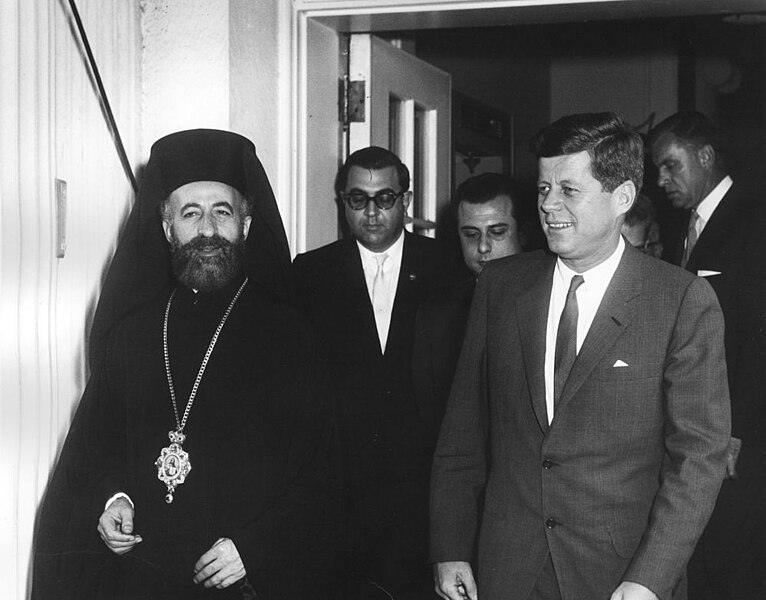
Forgoing enosis, however, was viewed by Grivas and the Greek nationalists as an unforgivable betrayal. Over the coming years, they would continue to push for unification with Greece, as even as Makarios became more and more committed to the path of independence.
Mainland Greek politics of the interwar years were marked by internal division, military rule, and struggles between liberal-democratic figures like Eleftherios Venizelos and right-wing monarchist dictators like Ioannis Metaxas. After four years of Nazi occupation, the country fell into a brutal Communist-Nationalist civil war.
In 1949, the communists were defeated. The 1950s saw efforts to rebuild the country. Greece joined NATO in 1952, aligning itself firmly with the Western bloc in the Cold War. In the 1950s and 60s, the political scene was dominated by center-right and centrist parties; left-wing parties were banned.
In 1967 a cohort of mid-level army officers seized power. The junta, known as the “Regime of the Colonels”, claimed they were saving Greece from a communist takeover. Plagued by infighting and incompetence, the junta's rule was characterized by widespread human rights abuses, including the jailing and torture of political opponents.
In July of 1974, Greek army officers in Cyprus — most likely under the direction of the Greek junta — staged a short-lived, unsuccessful coup against President Makarios. In response, on Saturday, July 20th, 1974, Turkish troops landed in Kyrenia, ostensibly to protect the Turkish Cypriot population and restore the constitutional order.
The Greek military, despite its control of the government, was completely unable to respond to the invasion. This failure exposed the junta's incompetence and inability to protect Greek interests. The Cyprus fiasco completely discredited the junta in the eyes of the Greek people and the military itself. The regime's claim of protecting national interests was proven hollow.
Faced with a crisis it couldn't handle, the junta began to fracture from within. Many military officers withdrew their support for the regime; within days the junta had collapsed, with leaders handing over power to a civilian government led by former Prime Minister Constantine Karamanlis.
The catastrophe of the Cyprus invasion had both immediate and long-term repercussions.
The first was the complete death of enosis as any kind of realistic political goal. With Greece unable to muster any defense of its compatriots, Greek Cypriots realized that they were on their own.
In addition, whatever small embers of the Great Idea that remained in Greek political life were extinguished as well. This isn’t to say that Greeks don’t still look toward Constantinople (Istanbul) — the City that was the heart of Greek culture and religion for more than a thousand years — with longing, regret, and bitterness. But with a population today of fewer than 2,000 Greeks remaining in a city of 15 million people (larger than the entire population of Greece) it can be safely said that the idea of a neo-Byzantine restoration is dead.
Another consequence of the invasion was that Greece entered the longest politically stable period in its modern history.
After the junta’s collapse, its leaders were arrested, tried for high treason, and sentenced to death — sentences that were later commuted to life imprisonment. The monarchy was abolished once and for all. In 1975, a new constitution was adopted declaring that Greece would be a parliamentary republic. A president would serve as head of state, but with limited executive powers. In 1981, Greece joined the European Union.
In the 50 years since the fall of the junta, Greece has been a stable democracy, with peaceful transitions of power oscillating mostly between center-left and center-right parties.
The Republic of Cyprus, meanwhile, maintained a presidential system with a multi-party democracy. In spite of the damage of the war and its massive refugee crisis, the Republic of Cyprus entered a period of rapid economic growth, in what The Economist would call “The Cyprus Miracle”. Visionary technocrats like Takis Konis leveraged foreign aid from the United States and Greece to pull off “one of the most successful post-conflict restructurings of a society”. In 2004, Cyprus became a full member of the European Union.
In occupied northern Cyprus, meanwhile, the Turkish authorities gave abandoned homes to Turkish Cypriots and eventually thousands of mainland Turkish settlers. The breakaway Turkish Republic of Northern Cyprus remains unrecognized by all countries except for Turkey.
Over the first decades of occupation, Turkish authorities refused Greek Cypriots access to the north. In 2003, the Turkish side opened the border, allowing Greek Cypriots to visit their former country. In some ways, this was worse. The beautiful places of Cyprus that had been mythologized in memory — Kyrenia, Famagusta, the Karpasia peninsula — had been robbed of their character, either neglected or (in the case of Kyrenia) largely given over to a British expat community who took advantage of one of the main benefits of summering in pariah country: cheap real estate.
While Greece and Cyprus have moved away from blind nationalism and authoritarianism and toward stronger democratic norms and greater economic integration into Europe, Turkey has in many ways moved in the opposite direction.
In 1922, Kemal Atatürk rode his military victory against Greece to become the leader of a new post-Ottoman Turkish nation. Atatürk’s one-party rule was characterized by modernism, secularism, fanatical nationalism, worship of the military, and an intense cult of personality (Atatürk means “father Turk”).
Atatürk died in 1938, at the age of 57. Today, his remains are interred in a massive mausoleum in Ankara, a symbol of his massive an ongoing influence.
Even after the establishment of a multiparty democracy in 1946, the Turkish military essentially retained veto power over the decisions of any elected government and didn’t hesitate to intervene. For the rest of the 20th century, the military viewed itself as the backstop of Atatürk's secular vision for Turkey. They intervened directly in politics multiple times, with staging coups in 1960, 1971, 1980, and 1997.
Even when they were not actively overthrowing elected governments, the army was always involved behind the scenes. The often misapplied term "deep state" (derin devletin Turkish) originated in Turkey to describe this phenomenon. The “deep state” refers to a shadowy network of military officers, intelligence operatives, business elites, and organized crime figures who were believed to be the real power behind the Turkish government.
The rise of Recep Tayyip Erdoğan and his Justice and Development Party (AKP) in the early 2000s initially seemed to promise a new era of democratization and economic liberalization. Erdoğan successfully curbed the military's political power, a move initially welcomed by many as a step towards true democracy.
However, particularly since the failed coup attempt in 2016, Turkey has seen a significant backslide in democratic norms, including increased centralization of power in the presidency, crackdowns on press freedom and civil society, and a weakening of judicial independence.
Erdoğan’s strongman approach has continued conflicts with the Kurdish minority population and provoked a newly aggressive attitude toward other neighbors, including Greece and Cyprus.
Unorthodox economic policies have led to high unemployment, high inflation and currency instability. (Erdoğan has insisted on keeping interest rates low despite high inflation, contrary to conventional economic theory. This approach has been criticized by many economists and has contributed to economic instability.)
Turkey's EU accession process has effectively stalled. Points of contention include human rights issues, the Cyprus problem, and disputes with Greece.
Turkey remains a NATO member, but relations have been strained, particularly over Turkey's purchase of Russian S-400 missile systems. Relations with the United States have grown more tense than at any time in recent history.
In his 1992 book The End of History and the Last Man political scientist Francis Fukuyama posited that with the fall of communism, liberal democracy had proven itself as the most viable and desirable system of governance.
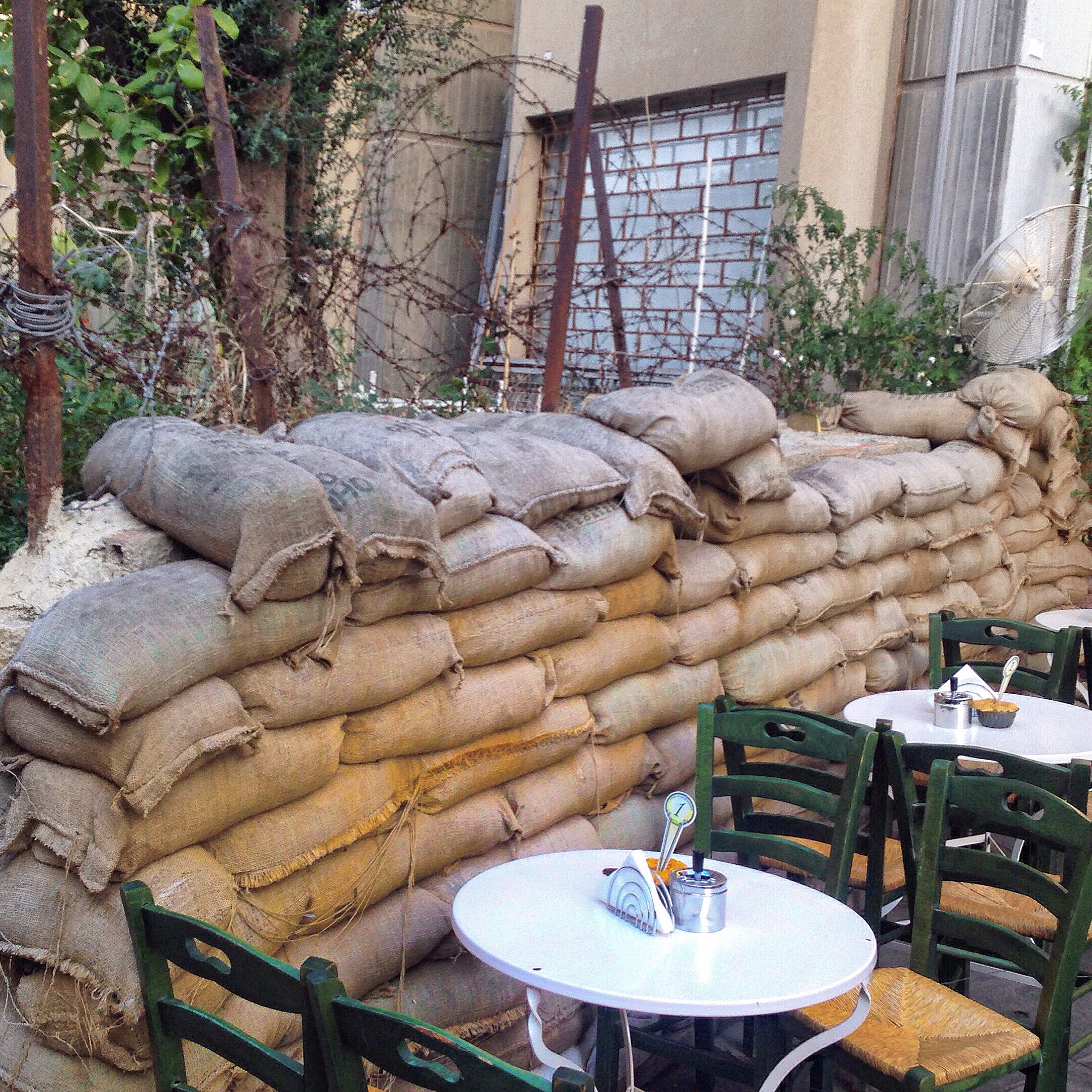
Cyprus and Greece appear to have followed the trajectory Fukuyama envisioned by leaving behind the turmoil of authoritarianism and extreme nationalism for the stability of liberal democratic governance.
For Greece, the invasion exposed the hollowness of military rule and nationalist ambitions, paving the way for a stable democracy and EU membership. Cyprus, despite the trauma of partition, built a thriving economy and joined the EU, embracing democratic norms and international cooperation.
Turkey, however, tells a different story, suggesting that the path to the freedom of liberal democracy is neither inevitable nor irreversible. Turkey's journey away from military interference didn't lead to liberal democracy, but rather to a different form of authoritarian rule.
I’m not sure why this is — why a country of such immense creativity and latent potential finds itself unable to shed the dark seductions of fanatical nationalism, militarism, and authoritarianism. Sadly, terrifyingly, these tendencies seem ascendent in many countries at the moment.
For Cyprus and Greece, the reckoning came through defeat, at a horrific cost. One hopes that this is not the only path — that countries can muster the collective will to make different choices before tragedy forces them to confront bitter truths and realize that real freedom and prosperity lie in embracing democratic values, respecting human rights, and fostering international cooperation.
As we mark the 50th anniversary of the Cyprus invasion, the unresolved conflict serves as both a somber reminder of the past and a call to action for the future. It challenges us to remain vigilant in defending democratic institutions, to resist the allure of divisive nationalism, and to work tirelessly toward reconciliation and mutual understanding.
